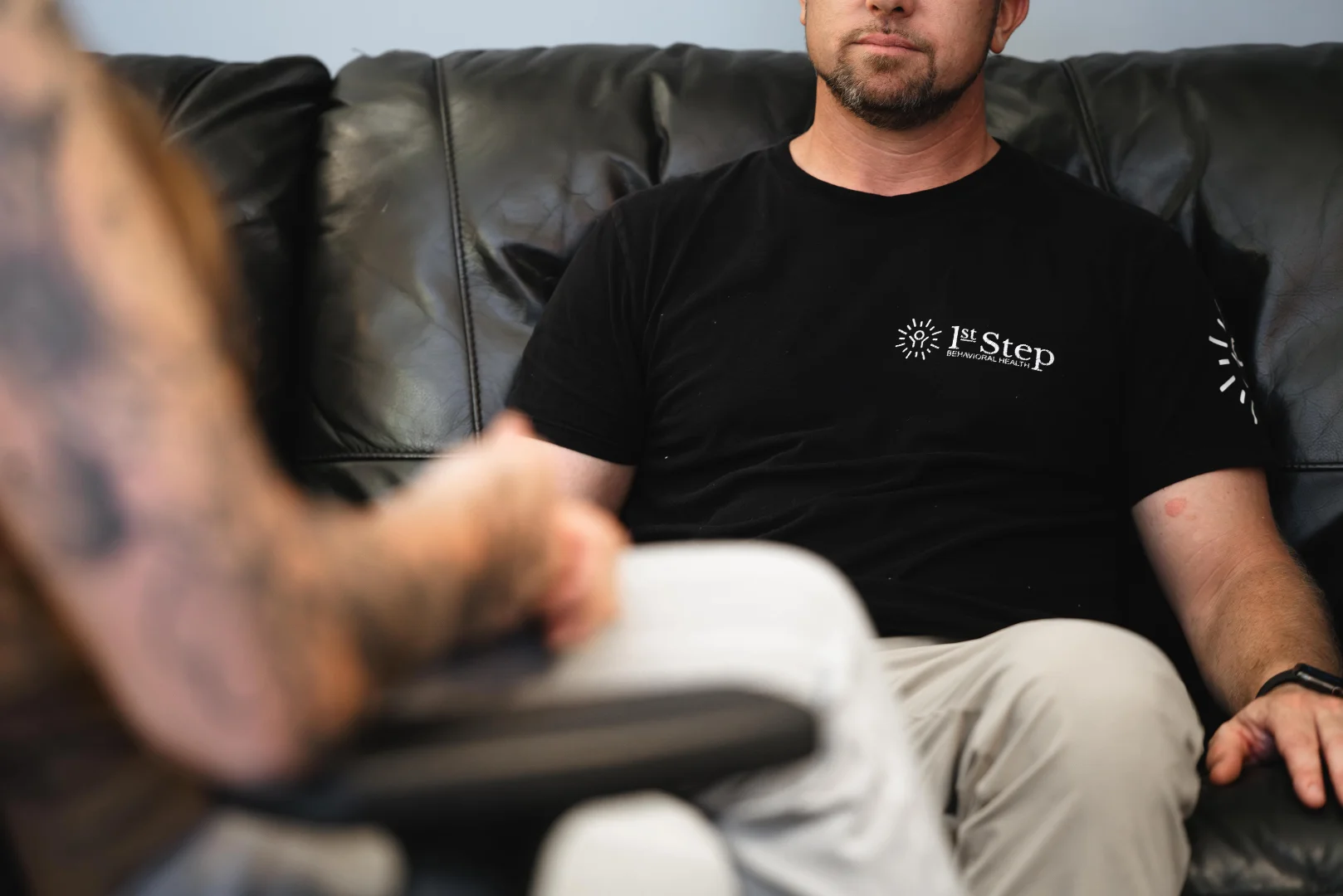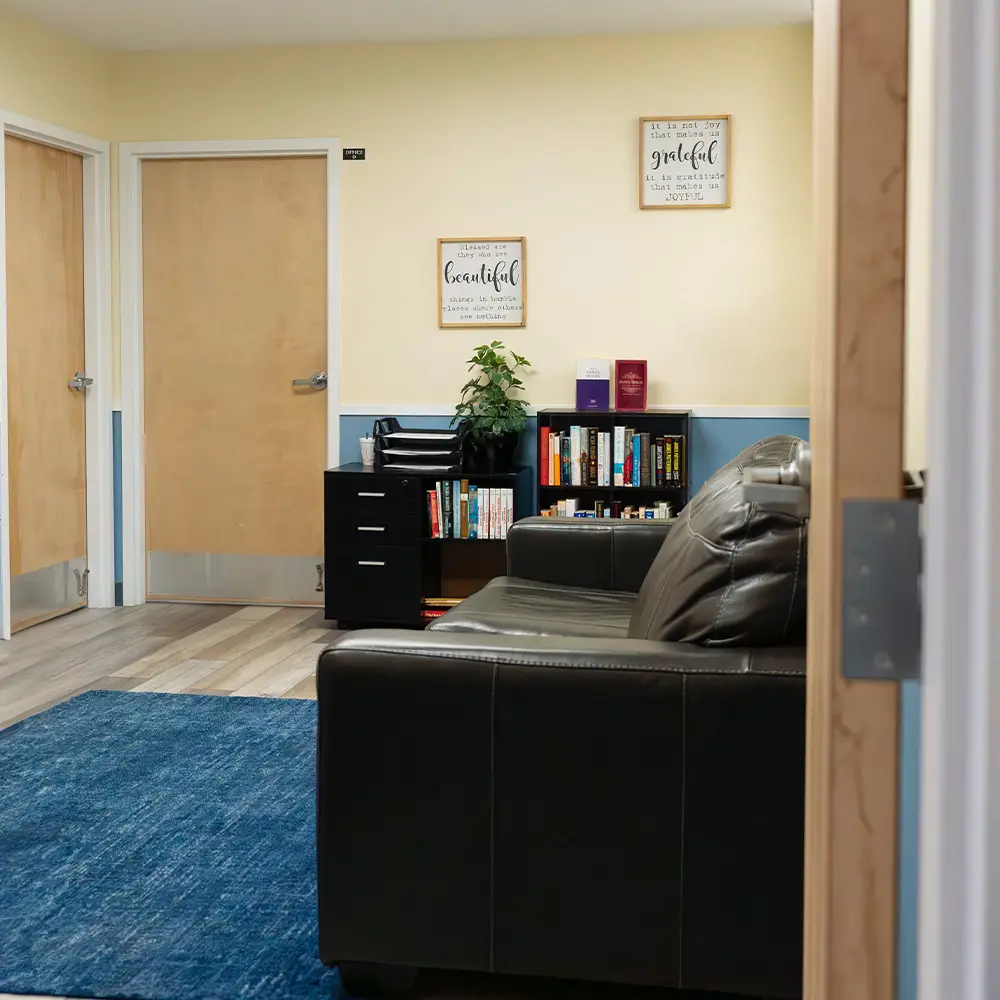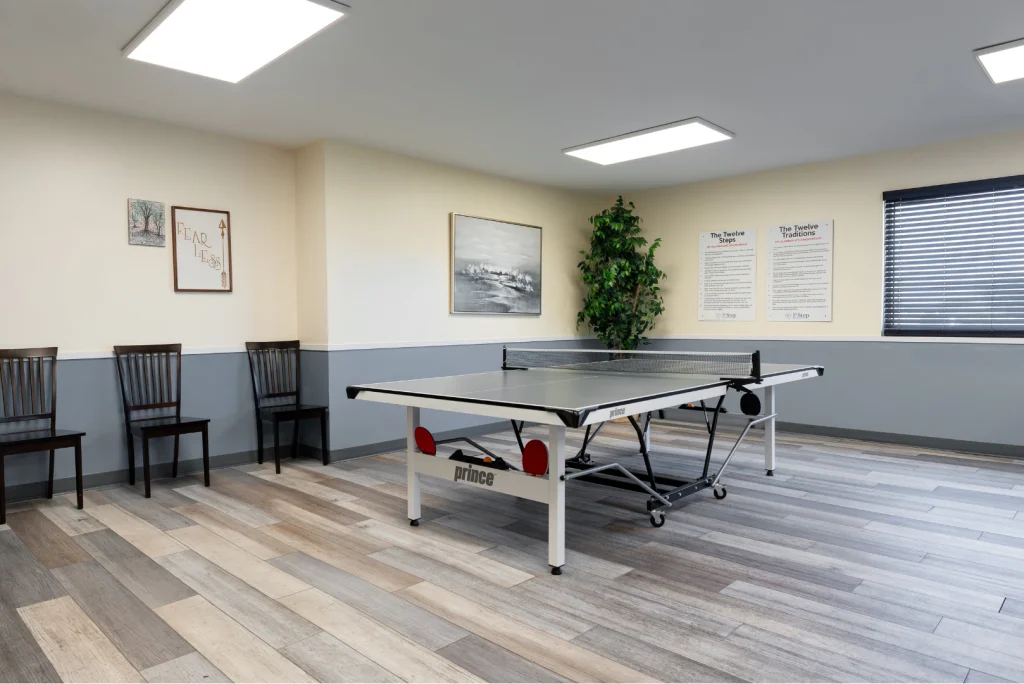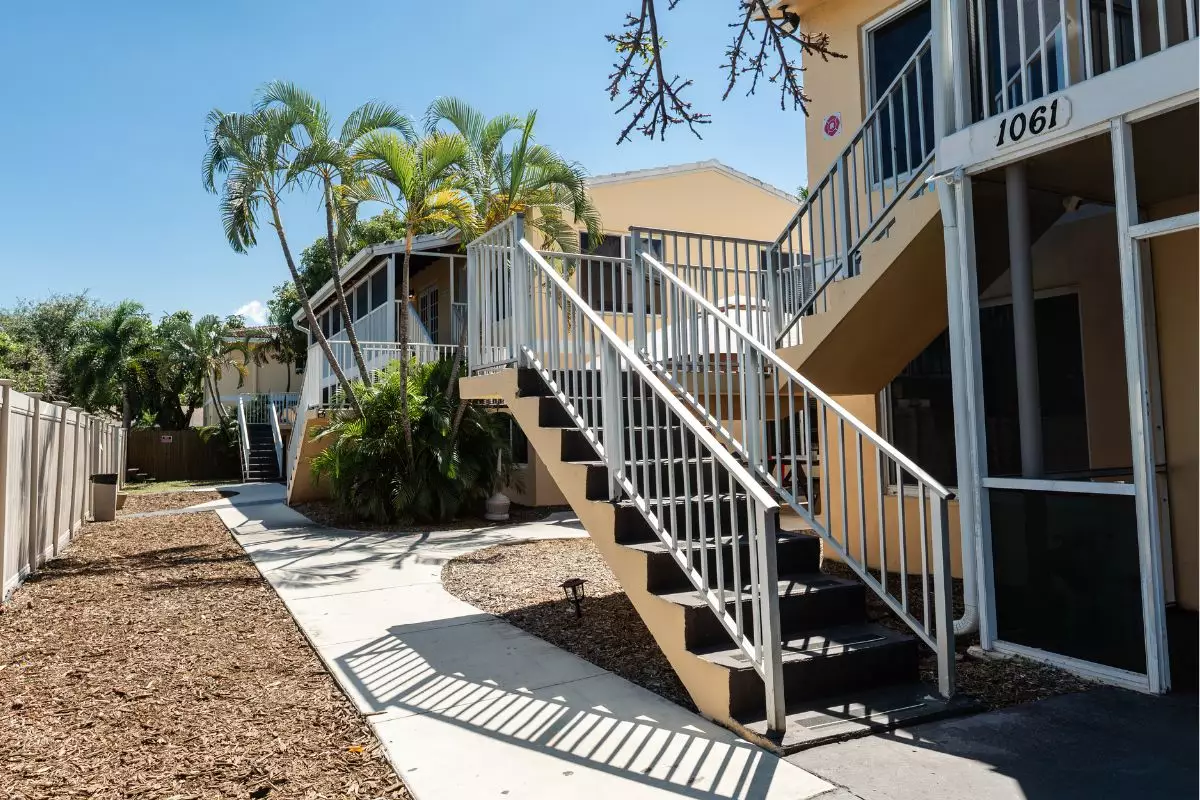A Personalized Approach to Addiction Therapy
Finding addiction therapy in South Florida begins with finding the right treatment center. The right center must understand your individual needs and commit to creating the best treatment plan for you. At 1st Step Behavioral Health, we would be honored to be that center for you.


Addiction Therapy At 1st Step Behavioral Health
Our addiction therapy embodies an unwavering dedication to fostering enduring recovery among patients. It mirrors the compassionate and nurturing environment cultivated by our attentive staff, ensuring that individuals receive the comprehensive support necessary for their healing journey.
Addiction Therapy Offered Across Multiple Levels of Care
We offer many kinds of different treatment options across multiple levels of care. At the heart of each treatment program is comprehensive addiction therapy.
Each person and situation is different, so please feel free to talk to one of our specialists today to determine where you fit. The levels of care we offer include:
Medical Detox
Detox or detoxification is a process that allows the body to get rid of chemicals and drugs. The purpose of medical detox is to manage withdrawal symptoms safely when you stop taking alcohol or drugs.
Every individual goes through a different experience at the beginning of the detoxification process due to the type of drug they are detoxing from and how long they have been addicted.
Our treatment center in Pompano Beach, Florida boasts a state-of-the-art, medically licensed detox facility that is properly equipped to safely and comfortably manage drug and alcohol withdrawal symptoms.
Residential Treatment
Our residential treatment center provides an intensive and structured program in a home-like environment. We offer apartment-style living with semi-private rooms and shared living and recreation areas.
During residential treatment, we provide personalized, compassionate care for individuals struggling with addiction or co-occurring mental health problems. Our patients will work with a counselor to determine their individual plans for recovery, including what therapies they can benefit from the most.
Intensive Outpatient Program
An intensive outpatient program or IOP consists of regularly scheduled sessions of structured addiction treatment and mental health counseling. IOP is a step-down for individuals who have completed detox and residential, providing them with the opportunity to receive continued support.
What is Addiction?
Simply put, addiction is a mental disorder that causes a person to not be able to control their use of an addictive substance, even if it’s damaging their life. Over one in seven people, which is about 40 million people over the age of 12 in America, are addicted to drugs or alcohol. Other serious diseases such as cancer, diabetes, and heart disease affect only 19, 26, and 27 million respectively, which makes addiction one of the most common diseases in America. Still, many people don’t view addiction as a serious disease, believing instead that those suffering from addiction simply make bad choices or lack willpower.
It’s possible to abuse drugs or alcohol and not be addicted, even if this drug use causes health, legal, or financial issues. However, the people in this category are able to make the choice to stop or continue on their own and change their patterns of abuse.
Addiction, on the other hand, is a serious and progressive disease that requires professional and often long-term treatment. Without addiction therapy, it only gets worse. Those suffering from addiction get sicker and may even die.

Why is it Necessary to Get Addiction Therapy at a Drug and Alcohol Rehab Center?
Most people would never attempt to treat something like cancer, heart disease, or diabetes at home or by themselves, because they know that these are progressive diseases and avoiding treatment can lead to death. Believe it or not, addiction is very similar to these diseases. It’s also a progressive disease that requires professional intervention and treatment before it gets worse or results in death.
People who are suffering from addiction require behavioral therapy to manage triggers, avoid future relapse, and understand the underlying cause behind their addiction–and therapy can help clients accomplish each of these requirements.
Types of Therapy Used in Addiction Treatment
One of the cornerstones of successful addiction treatment is therapy. Various therapeutic modalities are employed to address the diverse needs of individuals on their path to recovery. Some of the therapies we use include:
Group Therapy: Fostering Connection and Support
Group therapy allows individuals struggling with addiction to connect, share experiences, and receive mutual support. Within the group setting, participants gain a sense of camaraderie, realizing that they are not alone in their struggles. This type of therapy encourages open dialogue, helping individuals express their thoughts, fears, and aspirations in a safe environment. Group therapy fosters accountability, empathy, and the development of essential interpersonal skills, which are crucial for long-term recovery.
Individual Therapy: Tailored Healing and Self-Discovery
Individual therapy, often referred to as one-on-one therapy, provides a personalized approach to addiction treatment. This therapeutic model allows individuals to work closely with a trained therapist to explore the underlying causes of their addiction, address co-occurring mental health concerns, and develop coping strategies. Individual therapy sessions offer a confidential space for self-discovery, introspection, and personal growth. Through this focused interaction, therapists can tailor their guidance to the unique needs and experiences of each individual.
Family Therapy: Strengthening Support Networks and Family Bonds
Addiction affects not only the individual but also their loved ones. Family therapy recognizes the importance of involving family members in the recovery process. These sessions provide a platform for open communication, understanding, and healing within the family unit. By addressing family dynamics, misunderstandings, and enabling behaviors, family therapy strengthens support networks and helps create an environment conducive to sustained recovery.
Gender-Specific Therapy: Addressing Unique Needs
Addiction experiences and challenges can vary based on gender. Gender-specific therapy acknowledges these differences and tailors treatment approaches accordingly. Providing a safe space for individuals of the same gender to share their experiences and concerns, this therapy type addresses gender-specific issues and fosters a deeper sense of understanding and connection. 1st step facilities regular men’s-therapy and women’s-therapy sessions.
Holistic Therapy: Nurturing Mind, Body, and Spirit
Holistic therapy approaches addiction treatment from a comprehensive perspective that acknowledges the interconnectedness of mind, body, and spirit. Incorporating practices such as yoga, meditation, art therapy, exercise, nutrition, and mindfulness, holistic therapy aims to restore balance and well-being on all levels. This approach not only addresses the symptoms of addiction but also promotes overall health and personal growth.
Behavioral Therapies: Rewiring Patterns and Habits
Behavioral therapies are designed to address the behavioral aspects of addiction and guide individuals toward healthier patterns of thought and behavior. Cognitive Behavioral Therapy (CBT) and Dialectical Behavior Therapy (DBT) are among the most widely used behavioral therapies in addiction treatment. They help individuals identify and change negative thought patterns, develop coping skills, and manage triggers that contribute to addictive behaviors.
Take the First Step Today
If you or your loved one is struggling with the disease of addiction, addiction therapy is the only answer. If you’re ready to seek the help you need in overcoming addiction, give 1st Step Behavioral Health a call or text today at (855) 425-4846.
